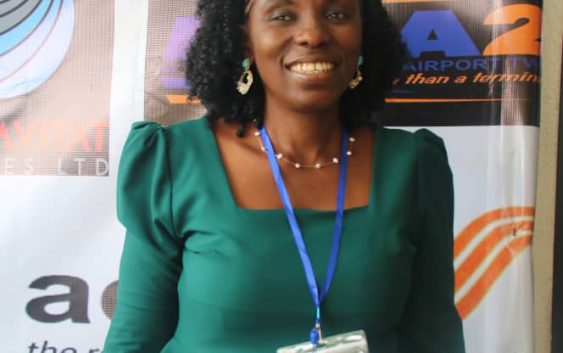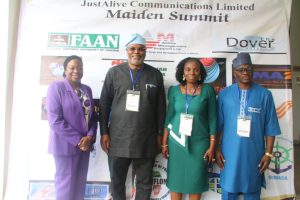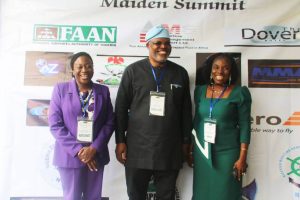- How Nigeria Can Replicate World-Class Transport Systems- Ngwama
- Ethiopian Airlines, largest carrier operating to Nigeria with 34 frequencies
- Benchmarking 2014 national conference report, realities in aviation sector
- Onyema: Air Peace’s Heathrow flight, symbol of national pride
- Okon: Aviation fuel market hampered by inefficiency, thin profit margin
How Nigeria Can Replicate World-Class Transport Systems- Ngwama

Convener of the 2025 Transport Summit, Mrs Pearl Ngwama, has called for an integrated transport masterplan to propel Nigeria’s growth, stressing that Nigeria’s transport infrastructure must become the engine of national development.
Speaking at the opening of the 2025 Transport Summit in Lagos with the theme ‘Nigeria’s Transport Infrastructure: Innovation for a Sustainable Future’, Ngwama said the world’s most advanced nations are built on formidable multimodal transport systems integrating road, rail, air and sea.

She said Nigeria’s geographical location and economic diversity offered an unparalleled opportunity to build such networks, linking farms, factories, ports and airports into a seamless logistics chain.
“We only have to look around the world to see how advanced nations are built on multimodal transport systems. These systems facilitate trade, improve productivity, reduce costs and drive innovation,” she said.
Highlighting Nigeria’s economic momentum, Ngwama noted that maritime trade surged to N130.75 trillion in 2024, marking a 91% increase over 2023. She added that the aviation sector contributed N215.6 billion to GDP, while the rail system recorded sharp increases in both passenger and freight movement in 2025.
“These numbers tell us we have momentum and potential, but also work to do,” she stressed.
Ngwama emphasised that transport infrastructure remains the bloodstream of the economy, asserting that when it flows freely, other sectors thrive, but when blocked, growth is stunted.
She urged collaboration among public and private stakeholders to ensure sustainability and innovation drive future transport development.
“Our ambition must be to move beyond quick fixes and stopgap solutions. We must plan, finance and execute systems built to last and adapt as technology evolves,” she added.
Ngwama expressed optimism that under the government’s Renewed Hope Agenda, Nigeria could build transport infrastructure capable of transforming trade and connectivity across West and Central Africa.
Ngwama also emphasised that Nigeria’s human capital, widely regarded as its greatest resource, cannot realise its full potential in the absence of robust infrastructure that connects people, markets, and industries.
“If transport infrastructure remains underdeveloped, every other sector of agriculture, mining, manufacturing, banking, health, and education will struggle,” she said. “Transport is the bloodstream of the economy. When it flows freely, the organs of the economy thrive; when it is weak, growth is stunted.”
She explained that sustainable transport innovation is not merely about constructing new roads or rail lines, but about creating systems that can adapt to new technologies, enhance productivity, and generate local opportunities.
“Our young people leave in search of better prospects abroad because we have not created enabling systems at home,” Ngwama said, referring to the rising wave of youth migration known as Japa syndrome. “If we build world-class infrastructure that supports jobs and innovation, our talents will stay and thrive here.”

“We must move beyond quick fixes and stopgap measures,” she added. “We must plan, finance, and execute transport systems that are sustainable, resilient, and built to last.”
Google+

